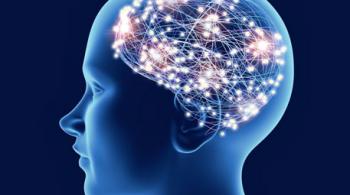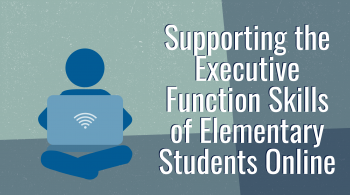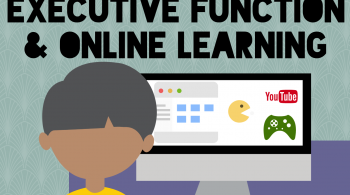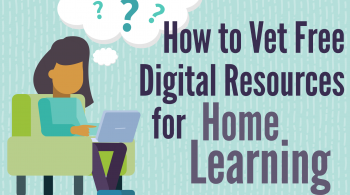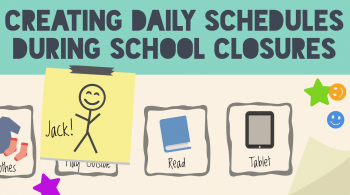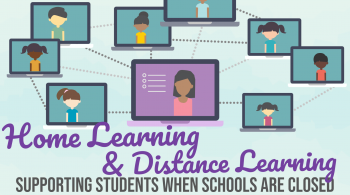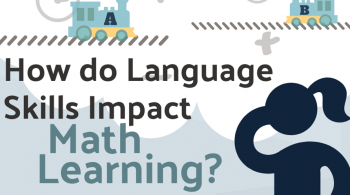May 10, 2016
Lisa Carey (LC) recently interviewed Dr. Andrew Zabel (AZ) about the nature of intellectual disability (ID) and new ways to consider supporting students with ID in the digital age.
Dr. Zabel is a pediatric neuropsychologist and research scientist at Kennedy Krieger Institute. He is the clinical director of the Department of Neuropsychology and an associate professor of Psychiatry and Behavioral Sciences at the Johns Hopkins School of Medicine. Dr. Zabel is on the core faculty in psychology for the Maternal and Child Health Bureau (MCHB) Leadership Education Excellence in Caring for Children with Neurodevelopmental and Related Disabilities (LEND) Program and the Mental Retardation and Developmental Disabilities Research Center (MRDDRC).
LC: As a special educator, I’ve come across a lot of misconceptions about intellectual disability. Why don’t we start our conversation off with the piece of misinformation that you find to be most common?
AZ: Sure! I think people are still adjusting to the changes made to the intellectual disability diagnosis in 2013. Before 2013, the severity of ID was determined by IQ [intelligence quotient] score. Someone with an IQ of 65 would be diagnosed with mild ID, while someone with an IQ of 55 would have moderate ID. That changed when the diagnostic manual was revised in 2013. While the diagnosis of ID still requires an IQ below 75, the severity of ID is now determined by the person's level of adaptive dysfunction. This means that the difference between mild and moderate ID is now determined by the level of help the person requires to complete daily living tasks, make purchases, and complete other functional tasks. In theory, this means that the severity level of the person's ID diagnosis should have relevance when planning how much support the person needs, how much funding they may require, and what type of educational approach should be taken with them.
LC: Can you give some examples of adaptive functioning?
AZ: People typically think of adaptive functioning as your social skills and your activities of daily living. Do you brush your teeth on your own? Comb your hair? Can you put together a meal? Can you communicate basic needs? These are important skills for completing the routine aspects of day-to-day life. With support, training, and the help of their teachers, people with intellectual disability can make meaningful gains in these areas, although the skills may develop at a slower than typical rate.
LC: If students gain these skills in their educational programs, are they in danger of losing their ID diagnosis?
AZ: Probably not. Adaptive functioning goes beyond routine tasks such as daily living skills, and includes problem solving in unusual or novel situations. Adaptive intelligence skills like problem solving, risk awareness, and recognition of exploitation are also important parts of intellectual disability diagnosis. What do you do if you accidentally get off the bus at the wrong stop? What if someone approaches you and asks you for money? What if someone acts like a friend but is actually exploiting or abusing you? It's great if you can complete functional tasks in a predictable setting, but it is also important to generalize these skills to novel situations when things aren't predictable and when the external supports are gone. Skills like these are much harder to learn.
LC: The skills you are talking about - problem solving and navigating novel situations - they sound like executive function skills. Most of the executive function resources for teachers and parents focus on students with ADHD and/or learning disabilities. What do executive function supports offer students with intellectual disabilities and how should teachers conceptualize providing those supports?
AZ: Students with ADHD or learning disabilities (LD) may have weak executive abilities, but most have otherwise intact intellectual abilities. Therefore it makes sense to have a lot of the focus on teaching skills and then working towards generalization, at least with older students. Many students with ADHD or LD can acquire the skills and learn to integrate them into day-to-day functioning. Generalization isn't impossible with intellectual disability, but it is much harder to achieve. Generalizing executive function skills like problem solving and organization is going to be very difficult, so environmental supports will be critical. In many cases, executive skills will need to be more externally applied by others and supported throughout the lifespan; however, even if generalization of skills does not occur, teachers can make a valuable contribution to students with ID by teaching executive skills so that they can be initiated with small amounts of discrete prompting or cueing from others.
LC: Can you give some examples of ways in which schools and communities can use environmental supports to help students with intellectual disabilities function with more independence?
AZ: I think intellectual disability is a really fluid and dynamic disability at this point. Given the accelerated advances in technology, many new accommodations are emerging and helping to expand functionality. For example, in the past, you might not have expected a person with intellectual disability to navigate with independence and safety within their community due to fears that the person may become lost, confused, or be taken advantage of. New technologies such as GPS tracking, a variety of apps, wearable technology, and things such as Google Glass make self-navigation much more possible and safer. A parent or caretaker can now get updates on where an individual is based on the GPS on their phone or a wearable device. Phones also have voice output to give directions and can self-correct if the directions are not followed – and this works for both walking and using public transportation. Although external supports might be needed by the person with intellectual disability, many of these supports can be delivered by technology, thereby expanding the person's functional independence.
It's actually a really exciting time, as students with intellectual disability are becoming far more independent than was previously thought possible. But it takes training, and we need to be training the right things. Why are so many schools focused on teaching kids with intellectual disability how to use coins to make small purchases? Isn't it more relevant to teach them how to use debit or gift cards, make purchases digitally, and monitor their expenses using an online money program like Mint.com? We need to identify what is more accessible. Should we go on community-based learning trips to the grocery store, or should we practice placing orders on Amazon or Peapod? We need to shift how we think about teaching students with intellectual disabilities to be more independent in our modern world. Teachers play a crucial role in the process, but need to remember to educate the student for the world the student will live in as an adult.






